The Destruction of Pompeii and the World
Pompeii has always evoked the same slow-down-to-gawk-at-road-accident schadenfreude fascination humans have for horror shows, gory nature shows and salacious murders that sell tabloids; delight at evidence that the world out there is wild and dangerous elevates our relative circumstances.
The remarkable thing about the Pompeii: Life in a Roman Town 79CE exhibition at the National Museum of Singapore (free entry during its concluding weekend. go see!) was the evidence that these were people not quite different from us who live in "developed" countries or in cities. It would possibly be more of a culture shock to visit a current-day "lost" Amazon tribe than to do a homestay with Lucius Caecilius Iucundus.
Lucius Caecilius Iucundus was a banker who, basically, ran e-bay (before the "e"). He managed auctions by paying vendors immediately but allowed purchasers a time frame to pay, with interest. Proper accounts were kept of these transactions in legalese such as:
While he was situated in Pompeii, most of the bankers could be found 30 miles from Pompeii in Puteoli, which was a major shipping town. Three-hundred ton grain ships from Africa and Egypt docked here for transshipment of goods to Rome. One such precious cargo was a man known as Paul of Tarsus (Acts 28:13).
But back to Pompeii. Pompeii was the place for the leisured classes to live well - it was blessed with delightful climate, fertile soil for the garden and was politically stable. There, bankers and other successful merchants (and those who made their fortune on fish sauce empires) put their wealth to work in large luxurious seaview properties. The garden took up at least one-fifth of total floor area and consisted of not just of a practical kitchen garden (hortus) where fruits and vegetables were cultivated but elaborate peristyled affairs filled with life-like statues (even if some looked like Michael Jackson), water features, garden furniture, fine art tromp l'oeil wall frescos and even aviaries. (Sir) Roy Strong would have been in heaven there.
The gardens were watered by fresh clean spring water from hills about 40km away, piped to Pompeii via aqueduct. Water pipes entered at the front door, fed mosaic fountains at the side of the impluvium or in the peristyled garden for household needs and decoration, then flowed out into a drain on the road at the base of the kerbstones where it flushed the streets of rubbish before ending up in storm drains that carried it to the river.
Bedrooms were located at the sides of the central courtyard and were windowless. Beds were made of stone or wood with bronze or silver trimmings. There was a headboard and a mattress base made of wooden cross pieces and strips of cloth or leather. In these rooms, women rocked their babies in wooden cradles and went about their daily ritual of doing their hair in the current fashion (this changed constantly and was set by the celebrity of the day - a member of the emperor's family) and beautifying themselves with cosmetics (whitening paste of chalk or lead, rouge, lipstick, soot eyebrow darkeners) and jewellery of elegant design and workmanship.
Lucius would have come home for main meals (cena) in his dining room (triclinium) and enjoyed at least three courses: an appetiser of eggs or oysters or other shellfish; a main course of fish, roasted pheasant, peacock, ostrich or pork and veggies cooked with olive oil, wine, vinegar, basil, majoram, coriander, mint or fish sauce (garum); and a dessert of dried or fresh fruit topped with honey or baked custard, all washed down with Pompeiian wine from the lush volcanic soil of Mount Vesuvius.
If he felt a bit peckish during the day, Lucius would have had a bite at one of several fast food snack bars, where cooked food was kept warm by constant heat. Thermopoliums were as functionally-named as "cooked food stalls".
Young men were expected to apply themselves to their studies, which was exactly what Pliny the Younger was doing across the Bay of Naples from Pompeii when Pliny the Elder, full of intellectual curiosity and some valour, set sail for Ground Zero after witnessing the eruption from afar. This is why the younger Pliny, his nephew, survived to provide this account of the eruption of Mount Vesuvius on or about 24 August 79 AD to Tacitus. His concern for the objective accuracy of his report is fascinating.
Pliny the Nephew eventually became a lawyer and then a governor, sending curt civil service memos but also substantial letters containing reports and advice on a religion that was allegedly disloyal to Rome:
Yet it seems we are no different from the poor Pompeians, who, though this same good news had come to Pompeii (Acts 28:14), were found attempting to escape the superheated pyroclastic poisonous gases, incandescent pumice and rock rain and thick ash smoke clutching the things they held dear ("What would you save if a volcano had just erupted in your backyard and your house was burning?") - family wealth (thick gold bands, vast amounts of jewellery, sacks of coins), the keys to their houses (locked to prevent looting) and their gilded household gods;
leaving behind babies in their rocking cradles, children behind staircases, guard dogs and prisoners still chained to their posts. They died tragically, without certain hope.
If this same God has long warned that there will come a day when the whole world will be destroyed in an event far worse than that experienced by Pompeii, surely our sense of self-preservation (and general humanity) should ensure that we do everything possible to save ourselves and our loved ones (and even that nasty neighbour) from the terrible day of judgment by clinging to the promises of Jesus?
(Having long wondered how Christians managed to gather to worship together in foreign cities where such meetings had to be clandestine, I assumed prior enquiries were made and letters of introduction given together with instructions for getting to the local church(es). However, Ben Witherington III reports that Roger Bagnall has suggested that amongst all sorts of political and gladiatorial advertisements, and profane and plain feckless graffiti on ruined Roman walls (see Pompeii graffiti), there were also Christian notations suggesting to insiders that there were believers in the city who could be found.
Never such amusement since sighting the Viking runes at Maeshowe on Orkney. Reading the Book of Acts and the New Testament letters are going to be so much more fun!)
*************
Pompeii: Life in A Roman Town 79CE
David Jones, The Bankers of Puteoli: Finance Trade and Industry in the Roman World
Smithsonian Magazine, Resurrecting Pompeii
Peter Connolly, Pompeii
Mary Beard, Life of a Roman Town
Core Study: Cities of Vesuvius
Pompeii: Gods Indifferent to Power of Prayer
The remarkable thing about the Pompeii: Life in a Roman Town 79CE exhibition at the National Museum of Singapore (free entry during its concluding weekend. go see!) was the evidence that these were people not quite different from us who live in "developed" countries or in cities. It would possibly be more of a culture shock to visit a current-day "lost" Amazon tribe than to do a homestay with Lucius Caecilius Iucundus.
Lucius Caecilius Iucundus was a banker who, basically, ran e-bay (before the "e"). He managed auctions by paying vendors immediately but allowed purchasers a time frame to pay, with interest. Proper accounts were kept of these transactions in legalese such as:
Umbricia Januaria declares that she has received from Lucius Caecilius Jucundus 11,039 sesterces, which sum came into the hands of Lucius Caecilius Jucundus by agreement as the proceeds of an auction sale for Umbricia Januaria, the commission due him having been deducted. Done at Pompeii, on the 12th of December, in the consulship of Lucius Duvius and Publius Clodius. (56AD)and authenticated by seals and signatures of witnesses.
While he was situated in Pompeii, most of the bankers could be found 30 miles from Pompeii in Puteoli, which was a major shipping town. Three-hundred ton grain ships from Africa and Egypt docked here for transshipment of goods to Rome. One such precious cargo was a man known as Paul of Tarsus (Acts 28:13).
But back to Pompeii. Pompeii was the place for the leisured classes to live well - it was blessed with delightful climate, fertile soil for the garden and was politically stable. There, bankers and other successful merchants (and those who made their fortune on fish sauce empires) put their wealth to work in large luxurious seaview properties. The garden took up at least one-fifth of total floor area and consisted of not just of a practical kitchen garden (hortus) where fruits and vegetables were cultivated but elaborate peristyled affairs filled with life-like statues (even if some looked like Michael Jackson), water features, garden furniture, fine art tromp l'oeil wall frescos and even aviaries. (Sir) Roy Strong would have been in heaven there.
The gardens were watered by fresh clean spring water from hills about 40km away, piped to Pompeii via aqueduct. Water pipes entered at the front door, fed mosaic fountains at the side of the impluvium or in the peristyled garden for household needs and decoration, then flowed out into a drain on the road at the base of the kerbstones where it flushed the streets of rubbish before ending up in storm drains that carried it to the river.
Bedrooms were located at the sides of the central courtyard and were windowless. Beds were made of stone or wood with bronze or silver trimmings. There was a headboard and a mattress base made of wooden cross pieces and strips of cloth or leather. In these rooms, women rocked their babies in wooden cradles and went about their daily ritual of doing their hair in the current fashion (this changed constantly and was set by the celebrity of the day - a member of the emperor's family) and beautifying themselves with cosmetics (whitening paste of chalk or lead, rouge, lipstick, soot eyebrow darkeners) and jewellery of elegant design and workmanship.
Portable oven
Lucius would have come home for main meals (cena) in his dining room (triclinium) and enjoyed at least three courses: an appetiser of eggs or oysters or other shellfish; a main course of fish, roasted pheasant, peacock, ostrich or pork and veggies cooked with olive oil, wine, vinegar, basil, majoram, coriander, mint or fish sauce (garum); and a dessert of dried or fresh fruit topped with honey or baked custard, all washed down with Pompeiian wine from the lush volcanic soil of Mount Vesuvius.
If he felt a bit peckish during the day, Lucius would have had a bite at one of several fast food snack bars, where cooked food was kept warm by constant heat. Thermopoliums were as functionally-named as "cooked food stalls".
On the inside of this armband is inscribed 'DOMINUS ANCILLAE SUAE' ('From the master to his slave').
For entertainment, there were plays and the deadly gladiatorial contests (complete with heart-throb celebrity gladiators) in a magnificent 5,000-seat theatre and a 20,000-capacity amphitheatre, and, if one was so inclined, prostitutes plying their trade at large elegant heated public baths and brothels, though there were also one's slaves for the job.Young men were expected to apply themselves to their studies, which was exactly what Pliny the Younger was doing across the Bay of Naples from Pompeii when Pliny the Elder, full of intellectual curiosity and some valour, set sail for Ground Zero after witnessing the eruption from afar. This is why the younger Pliny, his nephew, survived to provide this account of the eruption of Mount Vesuvius on or about 24 August 79 AD to Tacitus. His concern for the objective accuracy of his report is fascinating.
Pliny the Nephew eventually became a lawyer and then a governor, sending curt civil service memos but also substantial letters containing reports and advice on a religion that was allegedly disloyal to Rome:
They maintained ... that all that their guilt or error involved was that they were accustomed to assemble at dawn on a fixed day, to sing a hymn antiphonally to Christ as God, and to bind themselves by an oath, not for the commission of some crime, but to avoid acts of theft, brigandage, and adultery, not to break their word and not withhold money deposited with them when asked for it. When these rites were completed, it was their custom to depart, and then to assemble again to take food, which was however common and harmless...I was encouraged in my Christian faith by the exhibition because I am reminded that my faith is based on fact. The ancients were no less intelligent nor sophisticated than we are now. They had the same concern for justice and governance and accuracy in financial and historical accounts. And so we do not need to discount Luke when he tells Theophilus at the beginning of Luke's Gospel:
The infection of this superstition has extended not merely through the cities, but also through the villages and country areas, but it seems likely that it can be halted and corrected...
Christians are not to be sought out. If brought before you and found guilty, they must be punished, but in such a way that a person who denies he is a Christian and demonstrates this by his action, that is, by worshiping our gods, may obtain pardon for repentance, even if his previous record is suspect. Documents published anonymously must play no role in any accusation, for they give the worst example, and are foreign to our age...
Inasmuch as many have undertaken to compile a narrative of the things that have been accomplished among us, just as those who from the beginning were eyewitnesses and ministers of the word have delivered them to us, it seemed good to me also, having followed all things closely for some time past, to write an orderly account for you, most excellent Theophilus, that you may have certainty concerning the things you have been taught (Luke 1:1-4).Being able to distinguish fact from myth, Luke records that Jesus was the son of God himself. He was born as a man so that he could preach the good news to his fellow men and then die for them. The good news was that though all men everywhere in the world were under God's wrath because they refused to worship him, Jesus' death on the cross would pay for their transgressions against God and they would live, if only they believed this. That God raised Jesus from the dead after three days was confirmation that Jesus' promise was trustworthy.
Yet it seems we are no different from the poor Pompeians, who, though this same good news had come to Pompeii (Acts 28:14), were found attempting to escape the superheated pyroclastic poisonous gases, incandescent pumice and rock rain and thick ash smoke clutching the things they held dear ("What would you save if a volcano had just erupted in your backyard and your house was burning?") - family wealth (thick gold bands, vast amounts of jewellery, sacks of coins), the keys to their houses (locked to prevent looting) and their gilded household gods;
leaving behind babies in their rocking cradles, children behind staircases, guard dogs and prisoners still chained to their posts. They died tragically, without certain hope.
If this same God has long warned that there will come a day when the whole world will be destroyed in an event far worse than that experienced by Pompeii, surely our sense of self-preservation (and general humanity) should ensure that we do everything possible to save ourselves and our loved ones (and even that nasty neighbour) from the terrible day of judgment by clinging to the promises of Jesus?
(Having long wondered how Christians managed to gather to worship together in foreign cities where such meetings had to be clandestine, I assumed prior enquiries were made and letters of introduction given together with instructions for getting to the local church(es). However, Ben Witherington III reports that Roger Bagnall has suggested that amongst all sorts of political and gladiatorial advertisements, and profane and plain feckless graffiti on ruined Roman walls (see Pompeii graffiti), there were also Christian notations suggesting to insiders that there were believers in the city who could be found.
Never such amusement since sighting the Viking runes at Maeshowe on Orkney. Reading the Book of Acts and the New Testament letters are going to be so much more fun!)
*************
Pompeii: Life in A Roman Town 79CE
David Jones, The Bankers of Puteoli: Finance Trade and Industry in the Roman World
Smithsonian Magazine, Resurrecting Pompeii
Peter Connolly, Pompeii
Mary Beard, Life of a Roman Town
Core Study: Cities of Vesuvius
Pompeii: Gods Indifferent to Power of Prayer
Labels: Historicity, Museum-mooching
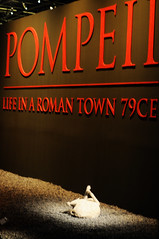
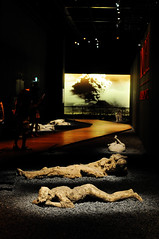
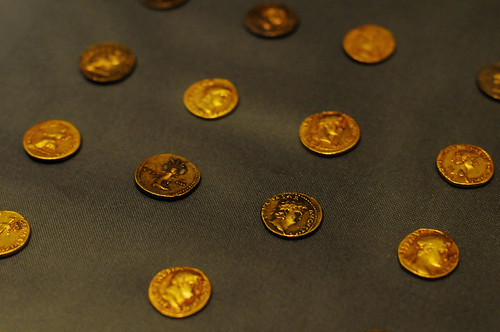
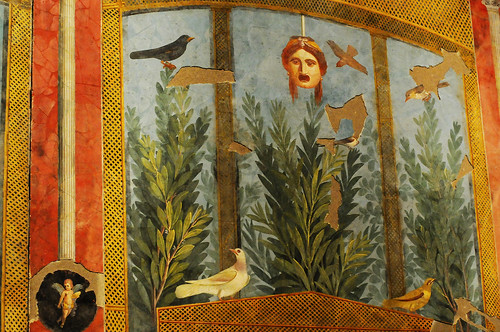
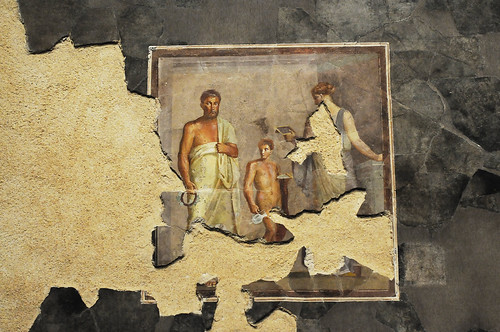
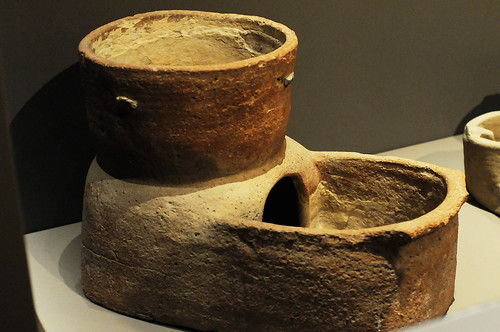
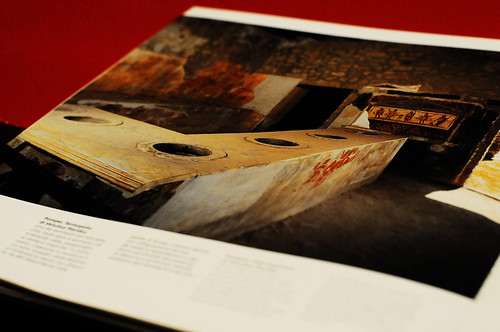
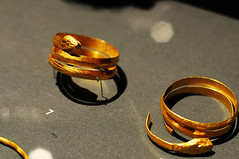
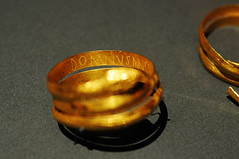
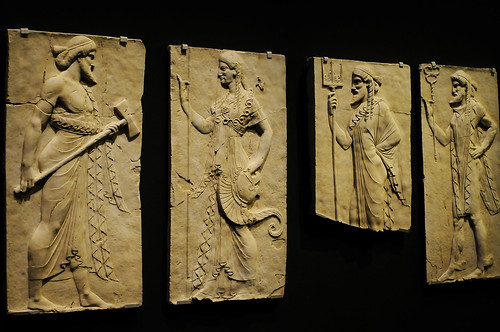
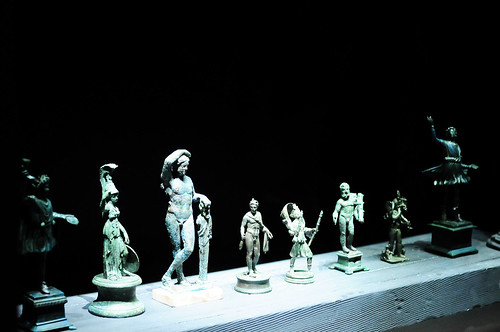
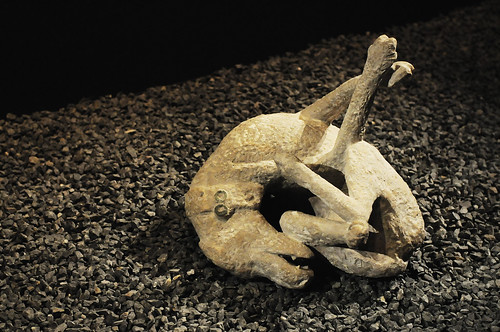
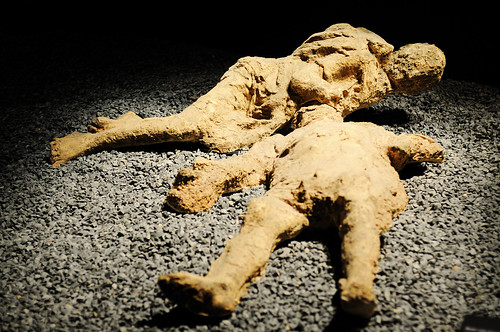







0 Comments:
Post a Comment
Subscribe to Post Comments [Atom]
<< Home